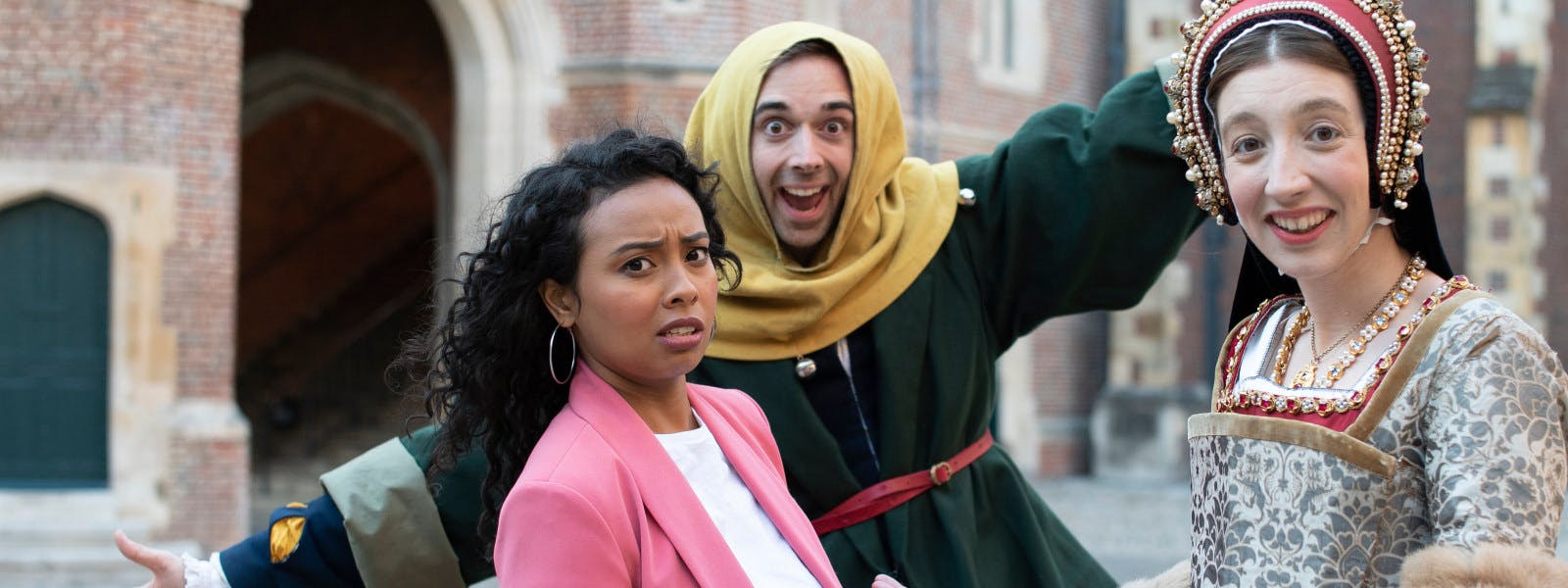
Find a resource to use in the classroom or on a visit to the palaces

Key infographics that show the impact of the Normans on England including key dates of royal succession, population demographics, the state of foreign relations, the social hierarchy, the economy and trade.

Compare the lives of two famous queens in British history.

A selection of resources about the Coronation of HM King Charles III for primary school students.

A selection of resources about the Coronation of HM King Charles III for SEND students.

A selection of resources about the Coronation of HM King Charles III for secondary school students.

Perfect for KS2 and KS3 history students, this activity helps recap key knowledge from theft to treason, torture to execution.

A simple guide to support your school visit to the Dress Codes exhibition at Kensington Palace.

Step into the role of advisors and respond to the currency troubles facing England.

Download short editable biographies of Elizabeth I's Tower of London Significant People for Key Stage 2, Key Stage 3, Key Stage 4 and Key Stage 5. Use key facts, activities and historic sources to explore various people connected to Queen Elizabeth.
